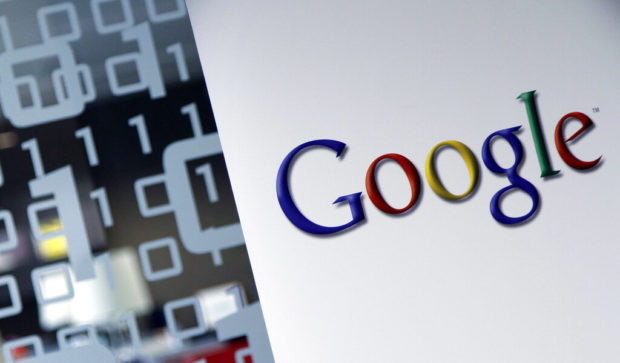US antitrust hammer for Big Tech: what happens next?

AP FILE PHOTO
WASHINGTON — Big Tech firms are facing an antitrust onslaught in Washington, including reported probes of monopoly abuse by regulators and at least one congressional investigation.
Here are three questions and answers on how these actions may play out:
What is the basis for antitrust actions against Big Tech?
Each firm has different issues, but any probes could center on whether they abused their dominant position and stifled competition.
Google may face questions on whether its search results favor its own services to the detriment of rivals. It has also faced charges in Europe of requiring its partners to use its ad platform, and of using its dominant Android mobile system to favor Google apps.
For Facebook, Amazon and Apple, the cases are less clear, although each of them dominated important market segments.
European Union officials have begun looking into whether Amazon discriminates against third-party sellers on its platform.
Democratic presidential candidate Elizabeth Warren has argued that Apple should not be able to run its App Store with its own services that compete against rivals such as Spotify, which has filed an EU complaint.
But experts argue that US law, as widely interpreted in recent years, requires that any case showed harm to consumers, a higher standard than in Europe.
Any monopoly litigation would be the first since the Microsoft case brought in the 1990s.
“It definitely will be an uphill battle,” said Christopher Sagers, a professor of antitrust at the Cleveland-Marshall College of Law.
“The federal courts have become quite conservative on antitrust in recent years as has the Supreme Court.”
What happens now?
The tech firms could face investigations from both the US Justice Department and Federal Trade Commission, as well as hearings on competition in the House Judiciary Committee which has begun an investigation.
Avery Gardiner, a former Justice Department antitrust lawyer and now a competition fellow at the Center for Democracy & Technology, said these agencies constantly review practices of tech firms, but that the recent dividing up of responsibility may signal a more serious posture.
“It sends a signal there is growing impatience for the regulators to start bringing some cases, but it doesn’t change the underlying standard,” Gardiner said.
Under normal circumstances, any major antitrust action could take many years to complete, analysts said.
“An investigation can take one to two years, then a trial can drag on for a long time, and there will be appeals after that,” said Blair Levin, a former Federal Communications Commission attorney who is a Brookings Institution fellow.
“In that time you will have a presidential election, so a lot of things could change during the process.”
The process could be streamlined because the EU cases have created a “road map” for US regulators, according to University of Tennessee law professor Maurice Stucke.
The legislative hearings will not be part of any enforcement action, but could uncover evidence that embarrasses the tech firms and eventually becomes part of an antitrust case.
Lawmakers may also review US antitrust standards in an effort to update laws for the digital era.
“It’s not clear whether those hearings have specific practices they want to address or if there is just a general unease” about Big Tech, Levin said.
Still, any public hearings could shine a light on tech business practices and whip up public support for enforcement ahead of the 2020 US elections.
But critics of the antitrust push say monopoly laws are not suited to dealing with the troubling issues of data protection or privacy, which may be part of a separate legislative effort.
What about a breakup?
US antitrust law allows for “structural” remedies such as a breakup of a monopoly, but this has only happened twice since the Sherman Act was passed in 1890. Those cases were the 1911 breakup of Standard Oil and the 1982 split of American Telephone & Telegraph.
In the Microsoft case, a judge ordered a breakup of the software giant but that was reversed on appeal.
Courts may also impose a variety of “behavioral” remedies such as allowing rivals better access to platforms’ technology and a ban on anti-competitive conduct, although these can be complicated to enforce.
“It’s highly unlikely that these companies ever get broken up,” Levin said.
“That is a very hard case to make. It takes a long time and by the time you would get to that, something else will happen” to change the marketplace, he added.
Gardiner said that while courts prefer structural rather than behavioral remedies, regulators would need to make a clear case on how a breakup might address competitive harm.
“They need to articulate the problem they’re trying to solve and how a breakup would fix that,” she said. “It might just result in two large behemoths in different parts of the industry.”